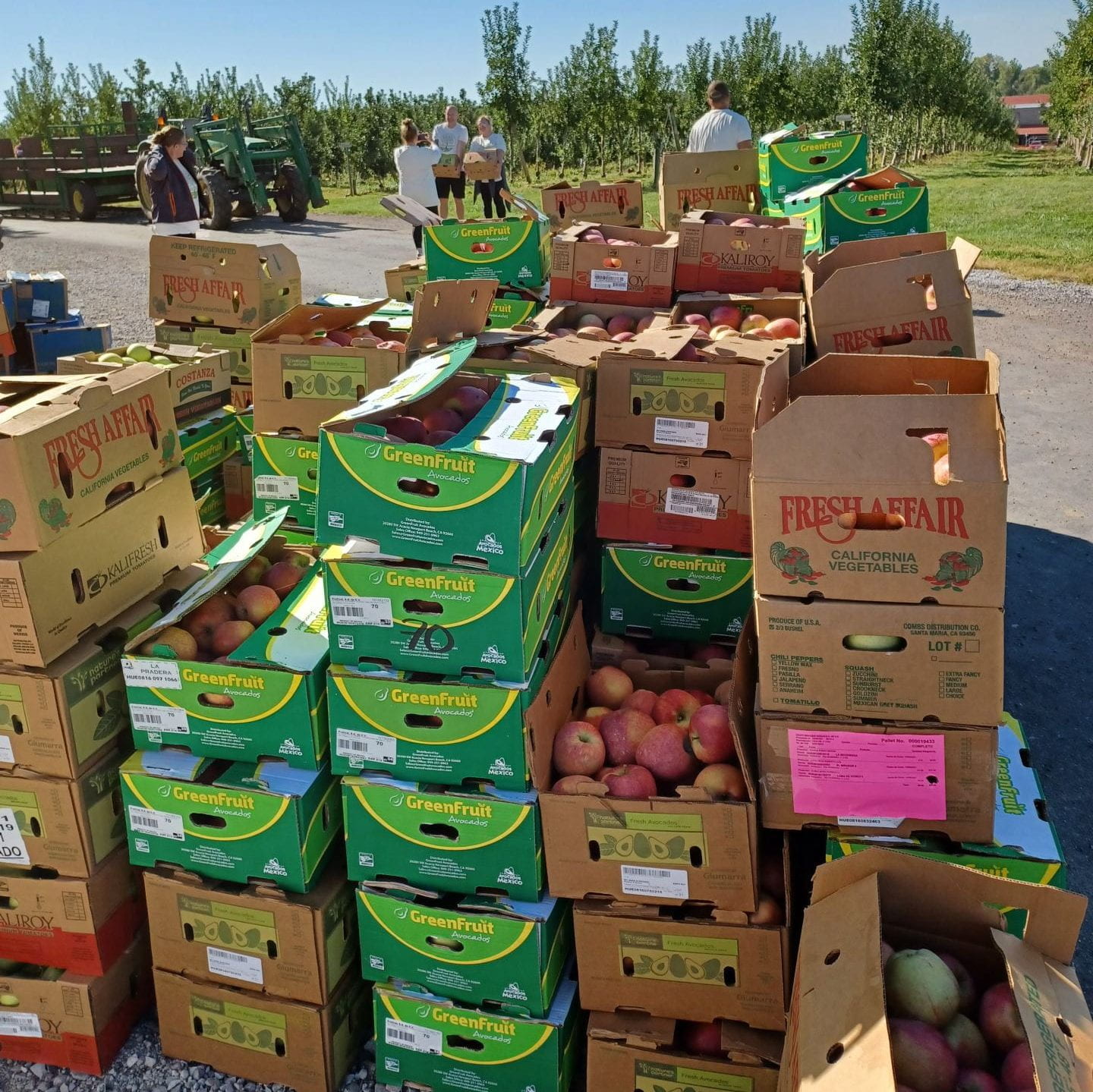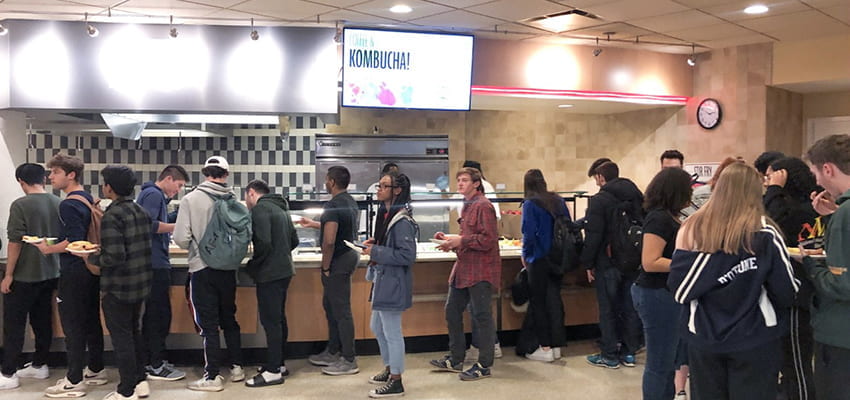Written by Claire Conroy, MS, RDN, LD, Special Events Coordinator – Dining Services & Business Operations
At the end of the semester, some students may find themselves running out of meal points. There is no consequence to running out of meal points, and students have the option to add Bear Bucks to supplement their remaining meals and snacks.
Yet, lower-income students may be unable to supplement their meal points as easily. Those students may feel as though they have to skip meals, choose lower-nutrient foods, or budget their remaining points to make them last.
The USDA defines food security as access by all people at all times to enough affordable, nutritious food for an active, healthy life. Food security has varying ranges of severity that may be consequential to an individual’s health.
Some individuals may experience anxiety or worry about running out of food. Anxiety, depression, and stress are some of the major health effects of any level of food insecurity. One 2019 study showed that food insecure students reported higher perceived stress, a greater prevalence of disordered eating behaviors, and poorer sleep quality compared to food-secure students.
Food insecure individuals may have to reduce the quality of their food to save money. Students experiencing this level of food insecurity may risk nutrient deficiencies from eating less nutrient-dense foods like fresh fruits and vegetables, lean proteins, and whole grains. Very low food security indicates the individual may have disrupted eating patterns and intake is severely compromised.
This is why the Food Security Fund was established. Washington University’s Dining Services and Student Financial Services work collaboratively to ensure all students have access to adequate, quality, nutritious foods on campus. The Food Security Fund was created to address potential food insecurity on campus, as well as reduce the stigma of seeking financial assistance for food.
This fund allows WashU students to transfer their unused meal points to the Food Security Fund at the end of each semester. Meal points are confidentially awarded to students in need of more meal points based on need and loaded directly onto their meal cards. Students are able to use these meal points at dining services locations on campus. This also allows students the freedom to use the transferred points as they please for accessible, freshly prepared meals.
Undergraduate meal plans operate on an “all points” or “declining balance” basis. This offers students greater flexibility and spending options in the a la carte cafes. These points are used to purchase meals, snacks, and other foods and beverages at WashU Dining Locations. The number of meal points are determined by the student’s chosen meal plan, including but not limited to the Silver, Gold, & Platinum plans.
Dining Services encourages students to pick a plan that fits their lifestyle and nutrition needs so that students do not have leftover meal points at the end of the year. Some students enjoy eating off-campus more often, which is why a lower point plan would suit them. Other students choose a higher point plan if dining off-campus is not feasible for them. Leftover meal points can be rolled over into the Spring semester, but not beyond the end of the school year.
In the greater community, two St. Louis non-profits are working hard to help end hunger, fight food insecurity, and stop the stigma surrounding both. The St. Louis Area Foodbank partners with over 500 hunger-relief programs in Missouri and Illinois to distribute food to those in need. They also work closely with individuals to help them determine if they are eligible for SNAP and walks them through the sign-up process.
Operation Food Search is a hunger relief organization that provides free food, nutrition education, and innovative programs proven to reduce food insecurity in Missouri and Illinois. One of their newer programs is the gleaning project, which rescues fresh food from farms to distribute into the community. Gleaning helps to reduce food loss and increases access to fresh, local produce in the community. Operation Food Search also has a Hunger Hotline, which connects individuals to food pantries and other helpful resources in their area.

Volunteer opportunities for Operation Food Search & STL Area Foodbank can be found here:
If you are interested in learning more about the Food Security Fund, including receiving assistance or donating your meal points, please contact Dining Services at diningservices@wustl.edu. The Food Security Fund request form is available as of November 1. You can request assistance from the food security fund here. Any student can reach out with concerns regarding running out of meal points. Dining Services is committed to providing assistance to all students.
If you are in need of financial assistance, please contact Student Financial Services. To speak to a Student Accounting Representative please call (314) 935-5274, toll free at (800) 758-0050 or email at Student.Billing@wustl.edu.
